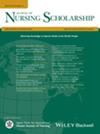Association Among Psychological Capital, Relationship Satisfaction and Psychological Distress in Stroke Patient-Spouse Dyads: An Actor-Partner Interdependence Mediation Model
Abstract
Purpose
To explore the association between psychological capital and psychological distress in stroke patient–spouse dyads and examine the mediating effect of relationship satisfaction in this association.
Methods
A population of 207 stroke patient-spouse dyads completed the Positive Psychological Capital Questionnaire, Quality of Relationship Index, and Kessler Psychological Distress Scale. A dyadic analysis was conducted using the actor-partner interdependence mediation model.
Results
In stroke-affected couples, a noteworthy interaction exists between moderately elevated levels of psychological capital (p < 0.01). Patients exhibit significantly diminished psychological capital and heightened psychological distress compared to their spouses (t = −5.429, p < 0.001; t = 2.536, p < 0.05). Conversely, there is no significant variance in relationship satisfaction between patients and the partners (t = −0.920, p > 0.05). Patient relationship satisfaction acts as a mediator in the correlation between dyadic psychological capital and patient psychological distress (β = −0.020, p < 0.05; β = −0.011, p < 0.05). Similarly, spousal relationship satisfaction serves as a mediator in the connection between dyadic psychological capital and spousal psychological distress (β = −0.011, p < 0.05; β = −0.020, p < 0.05).
Conclusions and Clinical Relevance
Psychological distress was reduced when psychological capital or relationship satisfaction in stroke dyads was promoted, and relationship satisfaction is an important mediator of the impact of psychological capital on psychological distress in the dyads. Healthcare providers should pay equal attention to spouses and implement dyadic psychological capital interventions centered on stroke couples to enhance relationship satisfaction and reduce psychological distress.




 求助内容:
求助内容: 应助结果提醒方式:
应助结果提醒方式:


